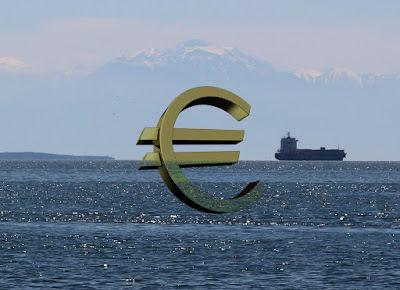Democracy, nationalism and hope
 |
| Picture taken in Lanzarote, by the author |
I have received since the referendum in the United Kingdom about the European Union a lot of messages, tweets and talks of shock, denial or anger about the results of the UK referendum and of the US presidential elections. You, dear reader, probably witnessed the same thing so I don't need to quote them. Unfortunately, I saw much fewer messages of hope from people who triggered this change by voting for Brexit or for Donald Trump, or who are feeling supported by either cause. But this probably tells more about my network than the real diversity of people's opinion, even though I have always tried to have as open a network as possible.
My argument in this post is that, whichever side of the argument you found yourself in, I will try and convince you that you should be optimistic about the future.
Democracy is alive
Firstly, the two political events mentioned previously were fantastic exercises of democracy. Brexit referendum campaign, for all its simplifications and exageration, has highlighted some real weaknesses of the EU: lack of democratic legitimacy, inability to act quickly, inability to control its borders, to influence its neighbors and poor economic framework inside the Eurozone. Donald Trump, for all its excessive retoric and disregard for existing institutions, has put forward interesting and important questions about free trade agreements, income inequality and the gridlock in Washington that were previously only discussed by experts. One should not expect that a single vote would resolve all, or even a lot, of the problems, but it is one of the great virtues of democracy to put in the public light the questions that will impact all of us in the future. It doesn't matter if you agree or not with the solutions proposed by the winner. What's important is that once an issue is in the public's eye, then experts have to come up with some solutions that will benefit most people. Democracy has never been a straight journey, it's about two steps forward and one step backwards, and on again.
The lagged consequences of the financial crisis
Actually, I have been surprised that it took so long for people to challenge the status quo. The financial crisis of 2007-2008 and subsequent recession was of a huge magnitude (figure 1). This was triggered by some bankers and traders who were free riding on the financial system until they crashed it. And, as the latter had predicted, they were ultimately bailed out by the government (meaning the taxpayers) and by central banks. By transferring private debt to the public sector, we have created a situation where the people who already suffered from the downturn (lost of jobs and/or savings), are now expected to pay back this debt for years to come. Actions always have consequences, and it was unavoidable that people would express their anger at some point. The only surprise is that because of the internal dynamics of the economy and the political systems, people express their disagreement with a lag, which is why analysts are often surprised. Indeed, analysts tend to be forward looking - looking at how the economy will be in a few years - and with a short memory - they forgot about the recent crisis - whereas the average voter tends to have a longer memory and be less forward looking. For example, most people will still feel downbeat after having spent two years unemployed and just signed up for a job. They will wait until their situation has stabilized for some time before feeling good and optimistic again.
figure 1: Loss of GDP (from peak to through), following the financial crisis.
Computed using annual GDP at constant prices. IMF data.
Nationalism
When things go bad, people tend to go back to familiar territory. If a company is in trouble in some of its businesses, it will try to downsize and focus on its core business that it knows best. If someone runs into trouble, he or she will turn to its family and closest friends. Similarly, as things haven't gone so well in the globalisation push, people naturally look towards the previous statu quo, which is inside national borders. Global trade is great as we can see movies from all aver the World, benefit very quickly from new innovations and interact with people from all over the World. I am, in many ways, one of the sons of this globalisation: I have an Italian car, Chinese phone, Russian email account and an Azuri flag on my keychains. And of course, I leave in London, one of the most cosmopolitan towns in history. I definitely enjoy this cultural mix. However, as a keen reader of history books, I don't want globalisation to wipe out national identities, which are the cornerstone of our civilisation. I don't want everybody to speak English when there are so many interesting languages and cultures around. And international trade cannot increase forever without consequences. Just to point out one fact, it is not good for the environment if the production supply chain of a product spans over too large an area, because transportation produces pollution.
Hope
To sum up, democracy is dynamic, economic situation is improving (global growth is projected by the IMF to be 3.4% of GDP in 2017 up from 3.1% in 2016), so why should we be pessimistic? It is healthy that some things are challenged. And even if we don't find good solutions immediately, it will work out better next time. The future is so much full of surprises that it's difficult to imagine it when you are swimming against the tide. But, to continue the nautical allegory, the tide turns around at some point, and then one can reap the benefits of its investments and efforts. So, even if former President Obama has left office, his message of hope is very much alive!



Comments
Post a Comment